Not many bands can boast a one hundred per cent success rate in the field of ‘moving on to bigger and better things’, but Trapeze – surely the best band ever to emerge from the sleepy town of Cannock, Staffordshire in England certainly can. Drummer Dave Holland occupied the Judas Priest drum stool for a decade, guitarist Mel Galley found his way into the pre-MTV Whitesnake for a while and bassist Glenn Hughes – well, if I need to tell you what happened to him then Sentinel Daily probably isn’t the web-based heavy metal magazine for you…
Anyways, what of Trapeze, I hear you mumbling… well, the good people at Purple Records (via the always dependable Cherry Red distribution network) have put together a rather attractive little CD boxset featuring the first three of the band’s studio albums which, if you’re a fan, require little or no introduction, alongside some rather nice unreleased live artefacts that (and quite deservedly so) will have aficionados of the band salivating like Pavlov’s Dogs at the mere thought of, as well as the band’s live album, Welcome To The Real World, recorded by the reformed trio (augmented by Asia‘s Geoff Downes on keys) in 1993.
The band’s journey began in the late sixties when they signed to the label formed by psych-proggists The Moody Blues, Threshold. The self titled debut, whilst being very much of it’s time – it’s a slightly bucolic mixture of the Moodies and, amusingly enough, pre-Gillan Deep Purple for the most part – has aged very well, in part due to the superior vocal talents of Hughes and co-vocalist John Jones but also to the fact that from the get-go Trapeze were a band who knew how to pen a thoroughly serviceable tune. Hughes’ performance on Nancy Gray and the album’s centrepiece seven and a half minute epic Fairytale/Verily Verily/Fairytale remain eminently listenable, even to the modern ear.
Times change, however and bands need to adapt to survive, so the outfit’s follow up, Medusa, reflected the wider move to heavier, bluesier waters; It’s the medium in which Hughes has become most respected over the years, of course, but on Jury, Seafull and Your Love Is Alright he already sounds like he’s been carving his niche for years, aided by some fabulous, tasteful axework from Galley and drumming from Holland that’ll be a revelation if you’ve only ever heard him dealing out the meat n’potatoes with Judas Priest…
By 1972 the band had really found what we now know to be ‘their wheelhouse’, and that year’s album, You Are The Music… We’re Just The Band found the band firing on all six on a collection of tracks that, with hindsight and fifty years to think things over, would now seem to be one of the most underrated albums in British blues rock history. Every one of the album’s eight tracks is a cracker, although the title track and Way Back To The Bone probably offer most to modern ears; this is a band in absolutely smoking form, and it’s no surprise that Deep Purple came knocking for Hughes in short order after the album’s release. Tight, taut but above all bloody great songwriting permeates the album, with performances from all three core members to match.
The double live CD, Live at the Majestic Theatre, Dallas Texas USA April 27, 1973, underlines just what a monstrous unit Trapeze had become. A year after the release of YATM…WJTB it finds the band in storming form on tracks renditions of Your Love Is Alright and Seafull. Bluesier but not as heavy as Humble Pie, heavier but not as bluesy as Free, Trapeze had blown a hole in the market in the US just for them and it’s not difficult to understand just why they became so popular stateside whilst wallowing in this superb set. Which is worth the price of admission on it’s own…
Fast forward to 1992 and the band’s reformation for a set of dates in the UK, recording their London show at The Borderline for a live album that took another six years to finally emerge into a music scene that had largely forgotten that the band had existed. The show is tight – how could it be anything else? – with Hughes in particular impressive after something of a lost decade that had involved a supergroup that should have been huge (Hughes/Thrall) and abortive dabblings with both Black Sabbath and Gary Moore that had left his reputation in tatters. It’s not as essential as the Texas set, but well worth a listen none the less if only to see how an added sixty years of combined musical experience altered the way the songs were delivered.
Great stuff then, and an ideal way to reconnect with the band if you’ve become estranged over the years or, perhaps more importantly, a fabulous opportunity with which to welcome new admirers to the Trapeze fold.
Don’t Stop The Music (Complete Recordings Vol 1 1970-1992) releases on February 24th.


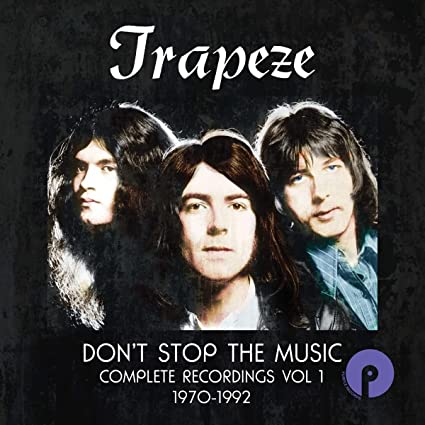
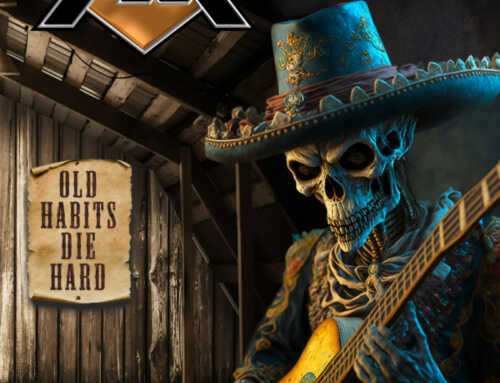
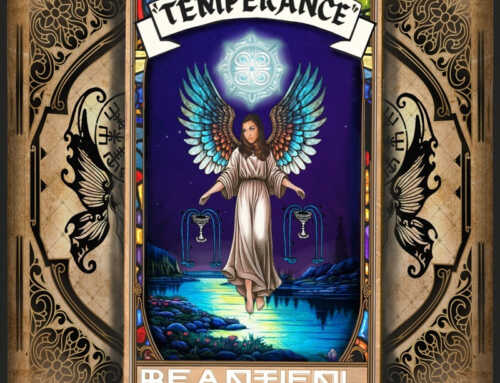
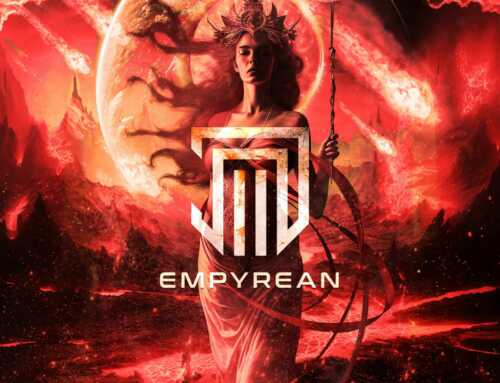
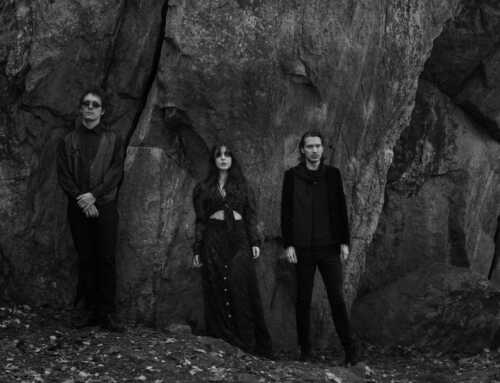
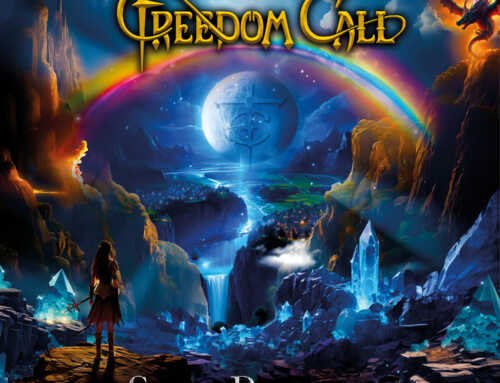
Leave A Comment